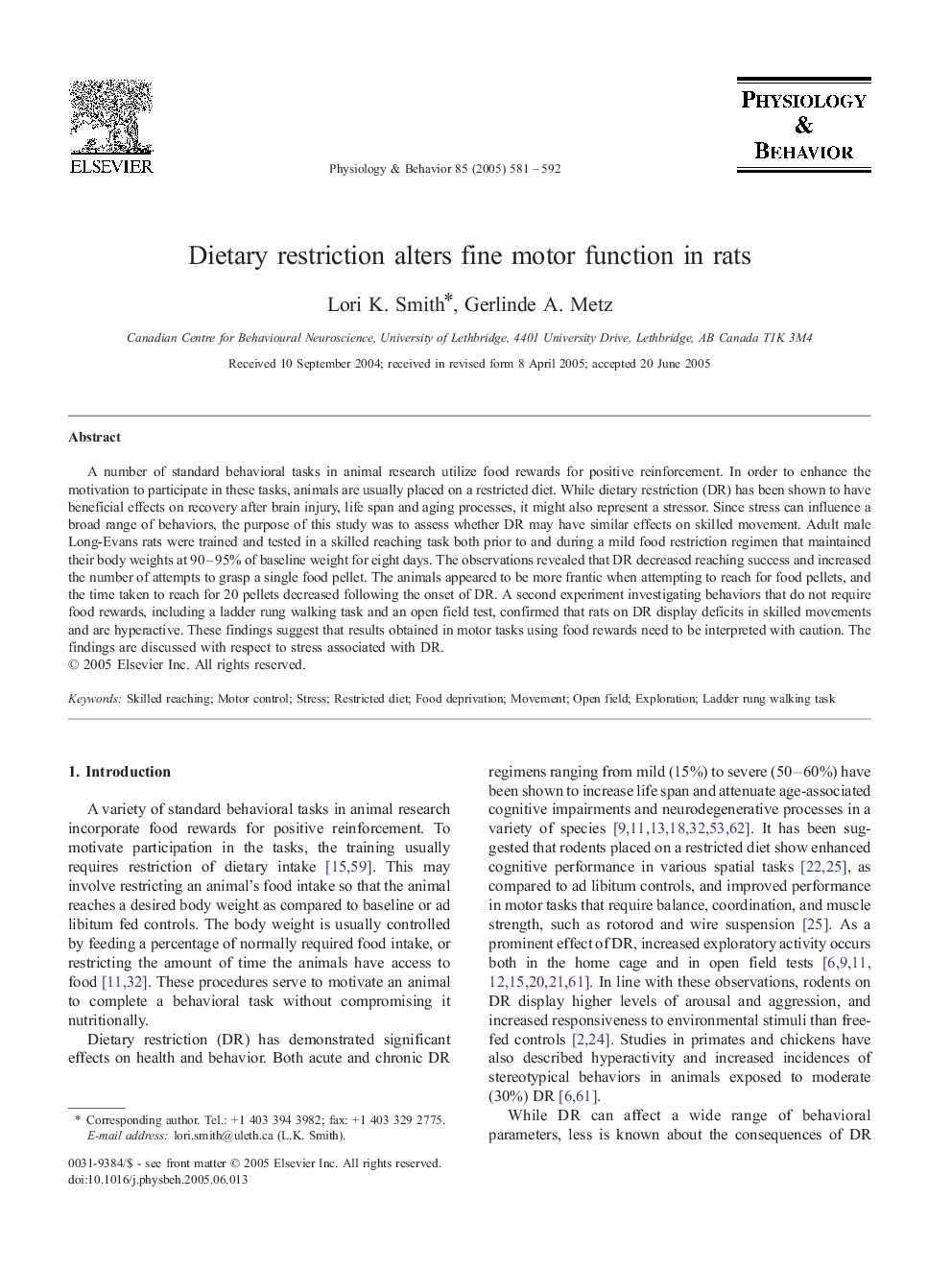| Article ID | Journal | Published Year | Pages | File Type |
|---|---|---|---|---|
| 9149647 | Physiology & Behavior | 2005 | 12 Pages |
Abstract
A number of standard behavioral tasks in animal research utilize food rewards for positive reinforcement. In order to enhance the motivation to participate in these tasks, animals are usually placed on a restricted diet. While dietary restriction (DR) has been shown to have beneficial effects on recovery after brain injury, life span and aging processes, it might also represent a stressor. Since stress can influence a broad range of behaviors, the purpose of this study was to assess whether DR may have similar effects on skilled movement. Adult male Long-Evans rats were trained and tested in a skilled reaching task both prior to and during a mild food restriction regimen that maintained their body weights at 90-95% of baseline weight for eight days. The observations revealed that DR decreased reaching success and increased the number of attempts to grasp a single food pellet. The animals appeared to be more frantic when attempting to reach for food pellets, and the time taken to reach for 20 pellets decreased following the onset of DR. A second experiment investigating behaviors that do not require food rewards, including a ladder rung walking task and an open field test, confirmed that rats on DR display deficits in skilled movements and are hyperactive. These findings suggest that results obtained in motor tasks using food rewards need to be interpreted with caution. The findings are discussed with respect to stress associated with DR.
Keywords
Related Topics
Life Sciences
Biochemistry, Genetics and Molecular Biology
Physiology
Authors
Lori K. Smith, Gerlinde A. Metz,
